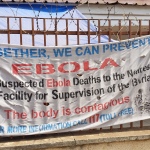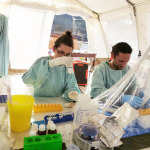A team of researchers from the London School of Hygiene & Tropical Medicine and Innovations for Poverty Action Sierra Leone developed a study evaluating the use of mobile technology in improving the process of tracing contacts of Ebola patients in Sierra Leone. As part of this study, the team, with the help of a developer, designed a customized application using Dimagi’s CommCare that has been implemented in the district of Port Loko. The research team seeks an individual or small group of mHealth experts to
Continue reading →
This issue of Limn on “Ebola’s Ecologies” examines how the 2014 Ebola outbreak has put the norms, practices, and institutional logics of global health into question, and examines the new assemblages that are being forged in its wake. The contributions focus on various domains of thought and practice that have been implicated in the current outbreak, posing questions such as: What has been learned about the ambitions and the limits of humanitarian medical response? What insights are emerging concerning the contemporary organization of global health
Continue reading →
The first round of trials on novel therapeutics for Ebola are set to begin imminently. Members of the Ebola Response Anthropology Platform, Ann Kelly and Clare Chandler, represented the Platform by participating in the WHO Ethics Working Group meetings in September and October 2014 to discuss ethical considerations for trials of new vaccines and therapeutics for Ebola viral disease. At a previous WHO consultation in August 2014, the Panel concluded unanimously that it would be acceptable on both ethical and evidential grounds to use as potential treatments or for
Continue reading →

